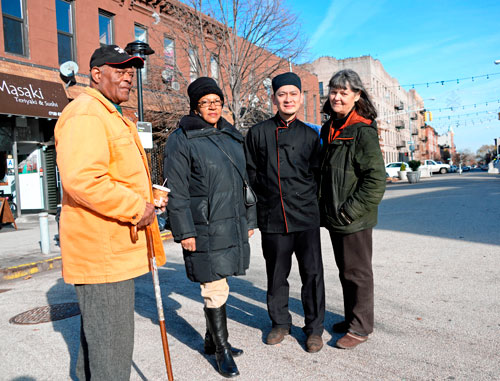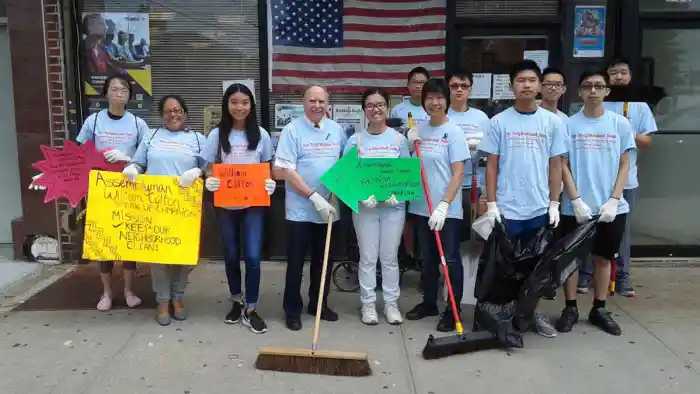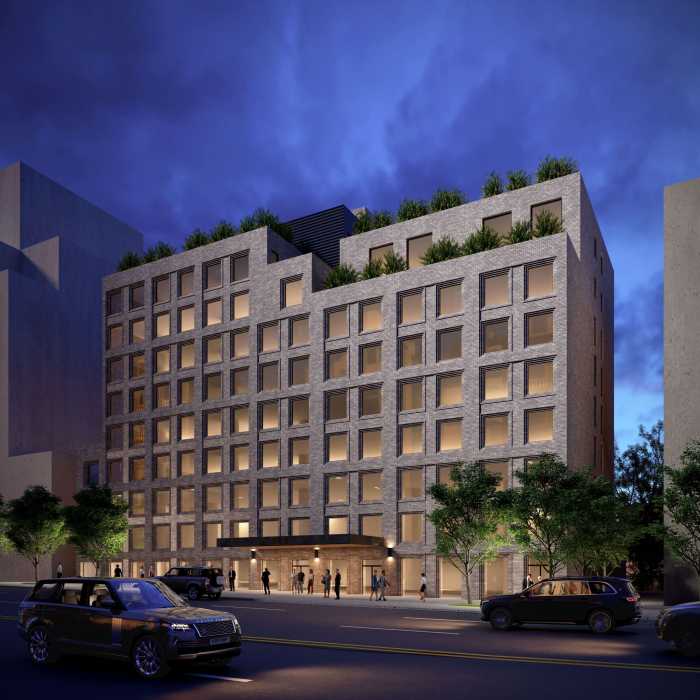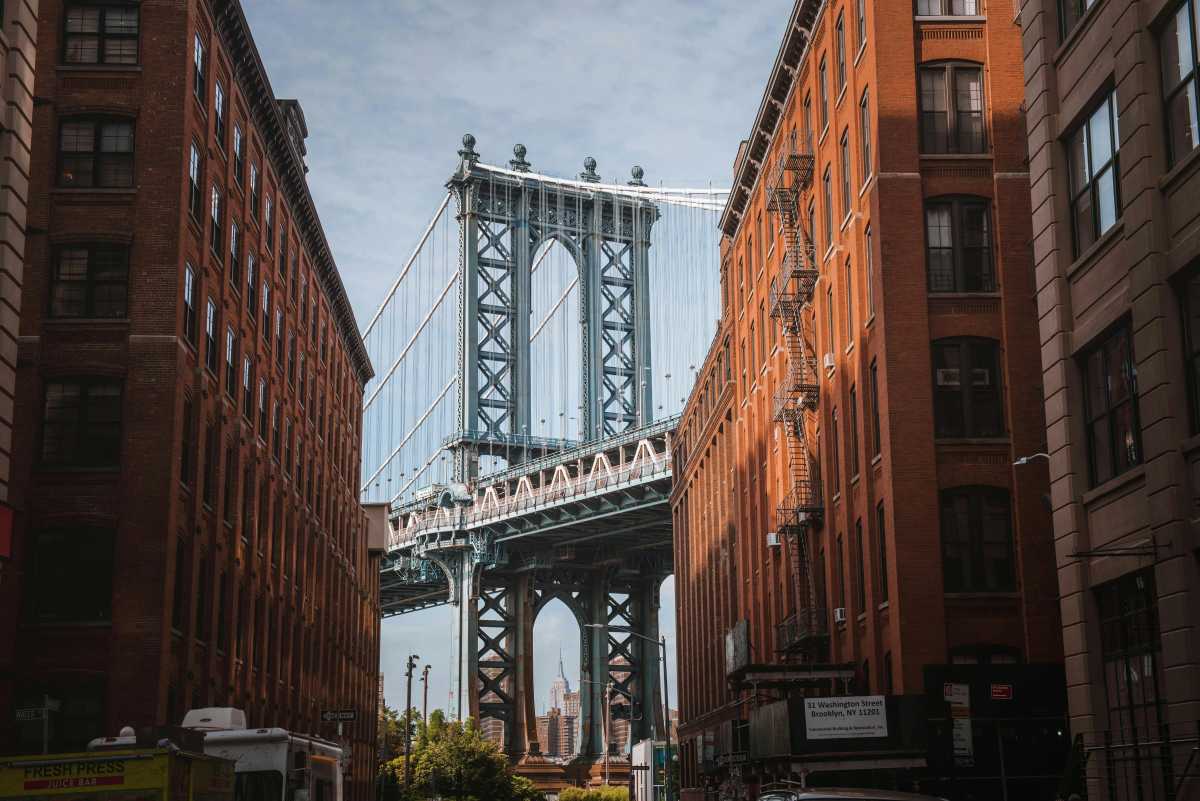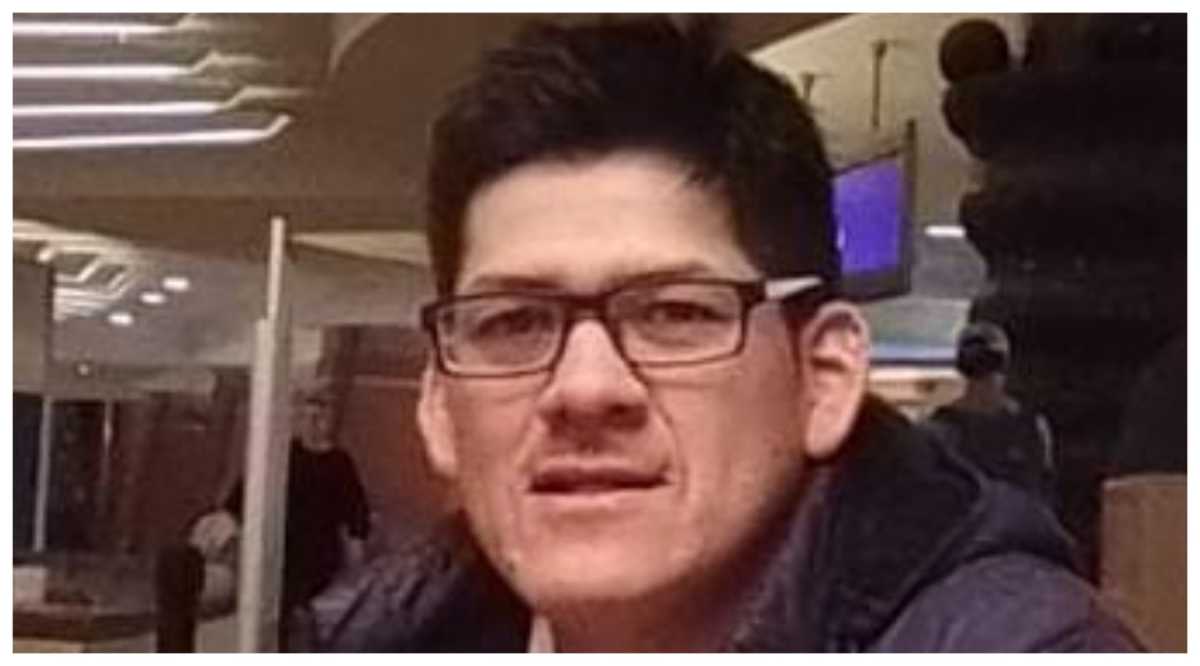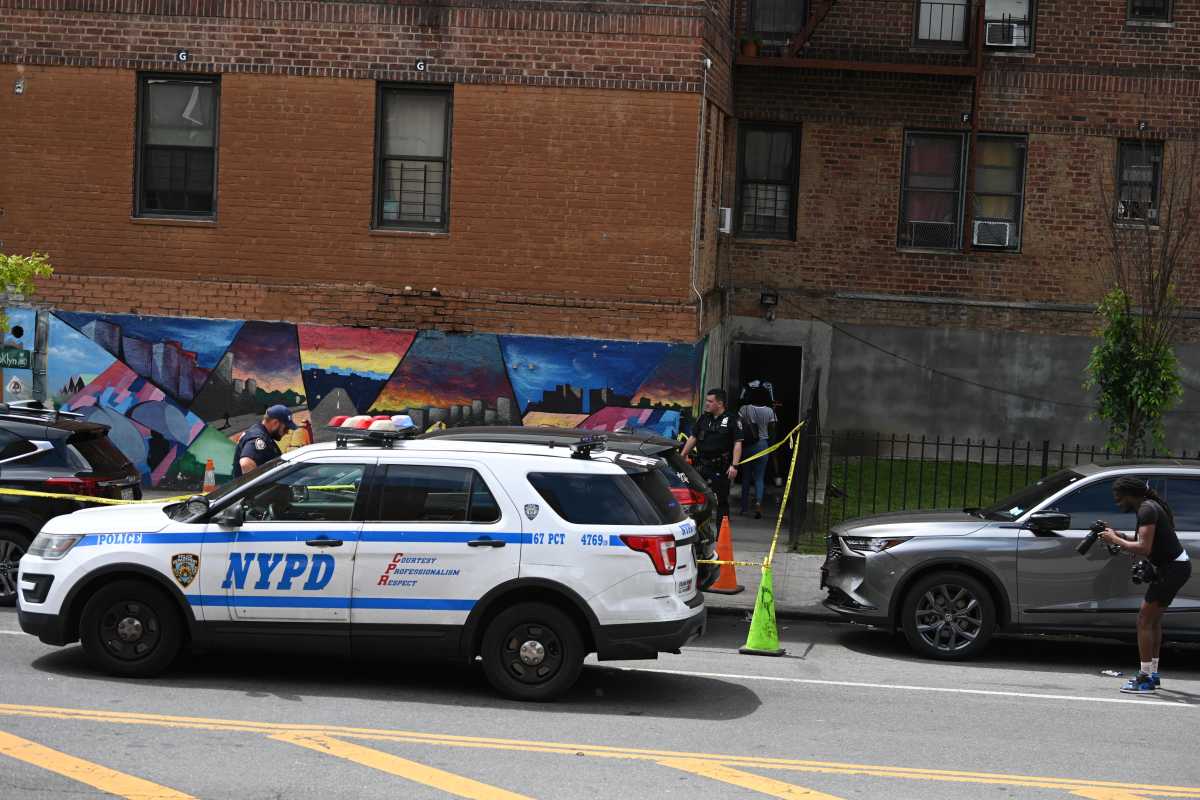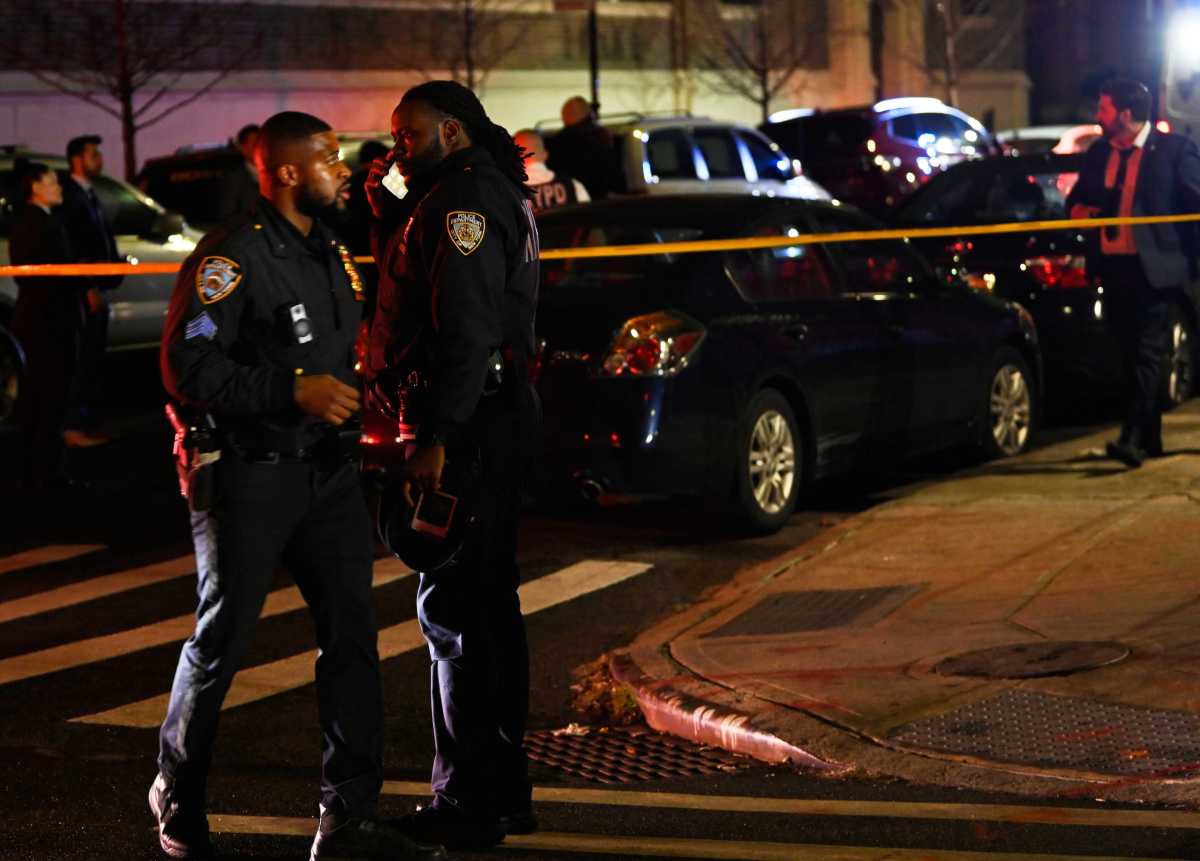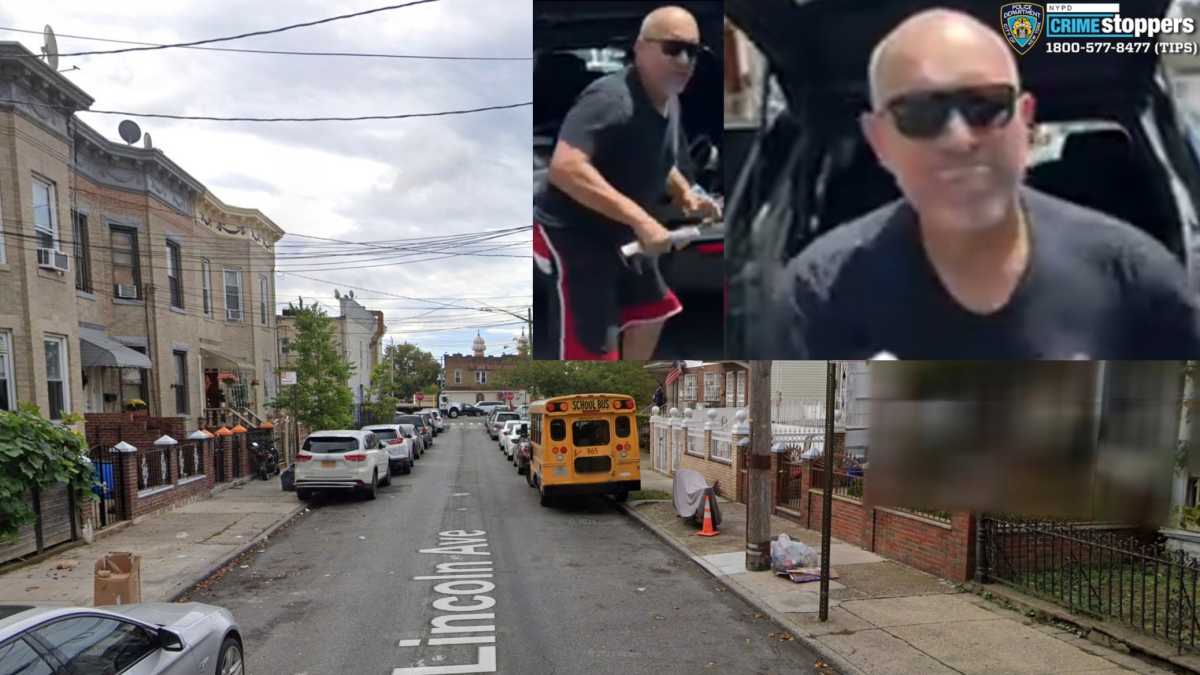A triangular plaza in Clinton Hill that includes a de-mapped block of road is a magnet for sinister loiterers who kill business, according to some neighbors who are opposing the city’s move to make it permanent.
The city first created Putnam Plaza, in the wedge formed by Grand Avenue, Putnam Avenue, and Fulton Street, in 2011 by blocking off the end of Putnam with rocks and planters. But adjacent businesses and community activists say the $3.75-million plan to build up the park is a waste of money because it is attracting the wrong crowd.
“People are drinking in the park, and no one’s picking up after them,” said Pierre Chan, owner of Masaki, a Japanese restaurant that opens onto the plaza. “They worry my customers. They’re dumping garbage. This is ridiculous.”
State Sen. Velmanette Montgomery (D–Clinton Hill) echoed the concerns in a letter to Department of Transportation head Polly Trottenberg in October, saying members of the local business improvement district were sold a bill of goods, and adding to the list of gripes intimidation and public urination.
“DOT initially promised the Fulton Area BID the plaza would create an improvement in the quality of life and business. Unfortunately, the exact opposite has been the result,” the pol wrote. “The complaints from the business owners include greatly increased illegal activities, including loitering, menacing, various forms of violence and threats, and use of the plaza as an outdoor toilet.”
Some community members opposed the initial plaza plan, but the local community board supported the idea then, and its administrator thinks it will continue to back the plaza this time around.
“The community board has been supportive of plazas generally,” said Robert Perris, district manager for Community Board 2.
The push to get the mini-park came from the Fulton Area Business Alliance, a local business booster, after it held a couple of successful events at the corner, despite the spot’s reputation for crime.
“It showed us the potential of that location,” said Phillip Kellogg, the group’s executive director.
And three years after the city implemented the plaza and street closure, Kellogg is happy with what he has seen, citing concerts, film screenings, and art events that have taken place there.
“New uses and activities for a space can affect positive change in the area,” Kellogg said.
He argues that the unsavory characters neighbors complain about long predate the plaza, and that the space has been a key component of the area getting fancier.
“Some of these challenges have existed for decades,” Kellog said. “This intersection has seen a dramatic change in the last few years, and the plaza has been a big part of that.”


